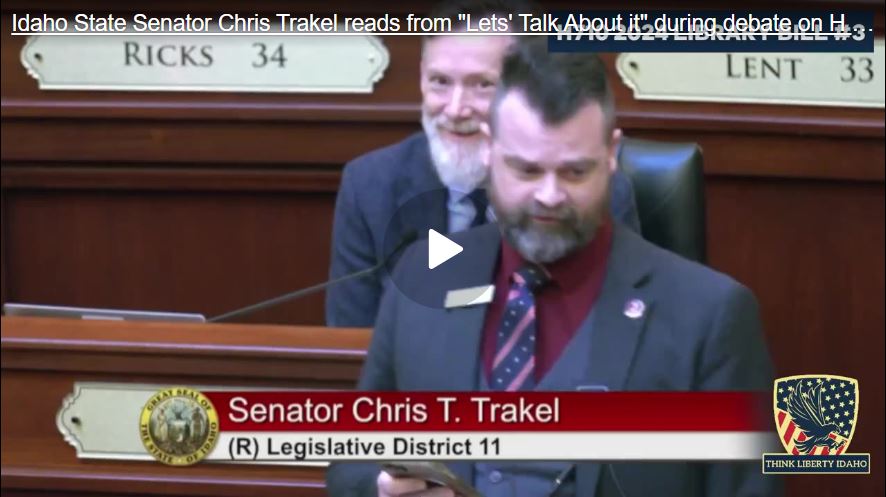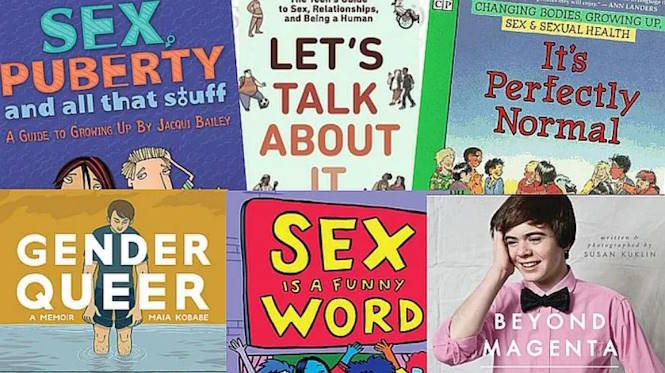
Fighting Socialism: Children’s School and Library Protection Act Finally Passes
After several years of attempting to move explicitly graphic (sexual) books out of the ready-reach of young children in our state’s schools and libraries, Idaho’s House and Senate finally passed meaningful legislation that restricts access to such books. House Bill 710, the Children’s School and Library Protection Act, creates civil liability for both public libraries as well as public schools if they allow conditions in which minor children can have easy access to what amounts to pornographic materials.
Dismantling the nuclear family by changing the value system of our nation’s children through material such as what is contained in these books is one of the goals of the American Library Association. Just within the last year, Emily Drabinski, President of the American Library Association, spoke at the Socialism 2023 Conference in Chicago. At that conference, Drabinsky stated, “Public education needs to be a site of socialist organizing. I think libraries really do, too, and that happens.” (Watch the video here).
Providing young children access to such material has long been a goal of America’s socialists. A 2022 article at the Independent Women’s Forum pointed out some of the goals of socialists in America, saying that ensuring access to such books influences the values and character of a generation and, thereby, an entire country. Socialists state that power lies not with parents, but with librarians, education experts, and corporations.
For years, multiple allegedly pro-family state representatives and senators in Idaho have blocked legislation to protect children from this material. This year was no exception. Earlier in 2024’s legislative session, two previous bills attempting to restrict easy-access for such books were killed. House Bill 710 was a third attempt this year, yet in the senate, Senators Abby Lee (R-D9), Treg Bernt (R-D21), and Linda Hartgen (R-D25) all voted against the bill.
Similarly, on the House side, allegedly pro-family Rep. Gregory Lanting (R-D25) and Rep Julie Yamamoto (R-D11) both voted against the bill. In debating the bill, Lanting stated that he and his friends read some of the library books in question, and concluded, “it’s PG-13 at best.” The names in red in the following image are the state representatives who voted to allow young children to continue to have free and unrestricted access to what amounts to pornographic material, a stated goal of socialist proponents in America.
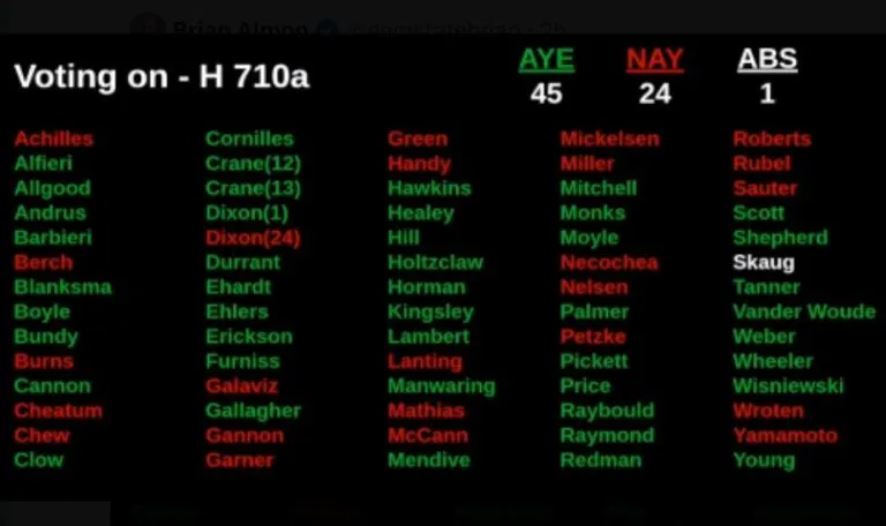
Before running for the legislature, Lanting was a public school teacher for 16 years and a middle school principal for another 17 years. Yamamoto was formerly a 1st and 7th grade teacher before becoming a principal at several schools. The following images are several among hundreds that neither legislator had trouble with. Again, Lanting specifically stated the material was, “PG-13 at best.”
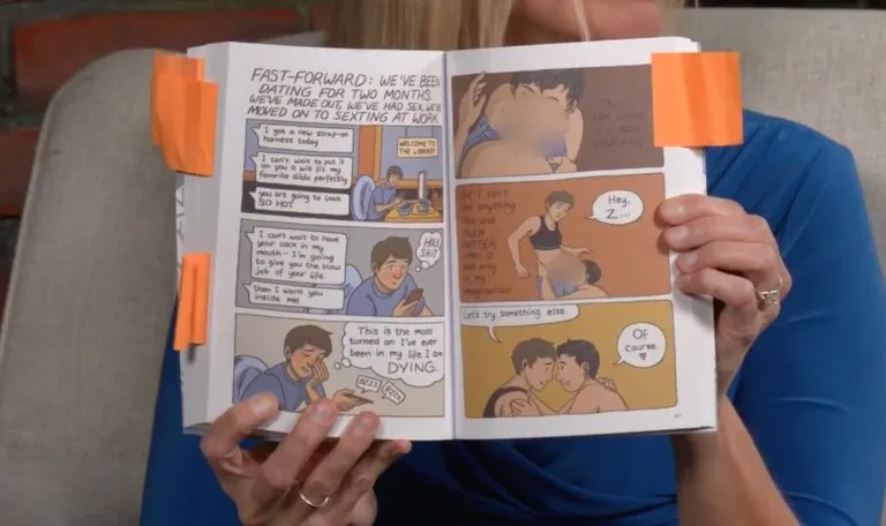
The following page “warns” children about “watching porn uncritically.” But one question posed was, “What will the child remember, the text or the image?” Additionally, how many minor children are emotionally equipped to put logic over their sexual urges?
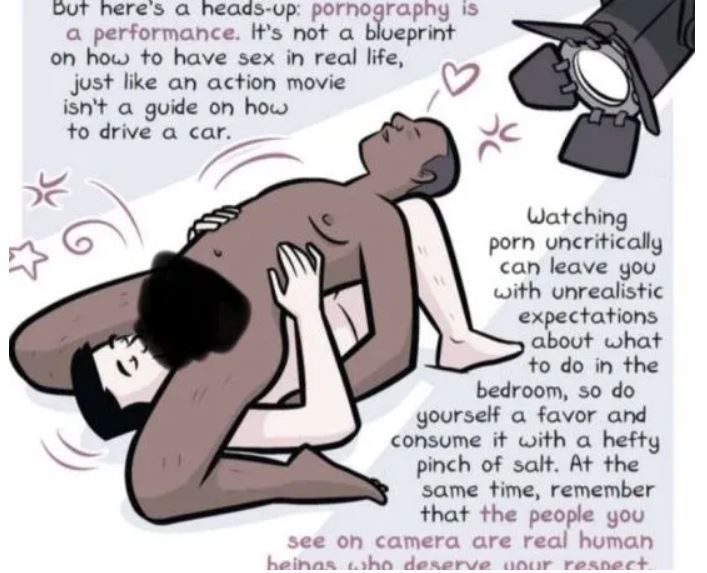
In debating the bill on the floor of the Idaho senate, Sen. Chris Trakel received permission from the Senate President to read from one such book, titled, “Let’s Talk About It.” After just a few sentences, Trakel was stopped by the Senate President, presumably because the language was getting too graphic. Trakel responded by stating the book is deemed suitable for kids by the library system, and that a 12-year old child had checked out the book. Watch Trakel making this point on the senate floor:
Idaho State Senator Chris Trakel reads from “Lets’ Talk About it” during debate on H 710
In 2023, the Idaho Family Policy Center released a report identifying 55 public schools and community libraries that allowed minor children easy access to obscene materials (read the report here). The Council helped draft the wording for H-710.
In a press release from the Idaho Family Policy Center, the organization’s president, Blaine Conzatti, said,
“Pornography has no place in schools or public libraries—period. Yet many public schools and community libraries exploit an existing loophole in Idaho obscenity law that allows them to promote or distribute pornographic materials to minor children.
“No child should ever encounter sexually explicit books at taxpayer-funded schools or community libraries. We’re grateful that state legislators have taken another swing at this documented problem—and we’re hopeful that the governor will sign this legislation into law.”
Governor Brad Little has five days to sign or veto H 710a (Sunday’s excepted) if the legislature stay in session over those five days. If Little does nothing, the bill automatically becomes law. That number changes to 10 days if the legislature completes its annual business within the original five days (Sunday’s excepted).
.
Daniel Bobinski is the editor at True Idaho News.
From trueidahonews.com
